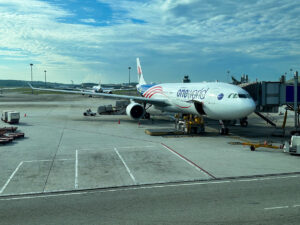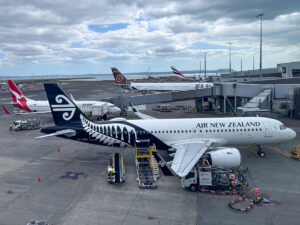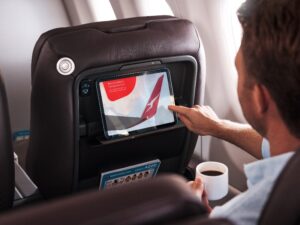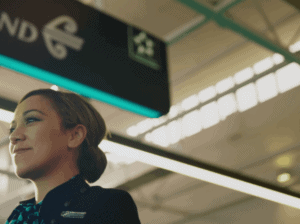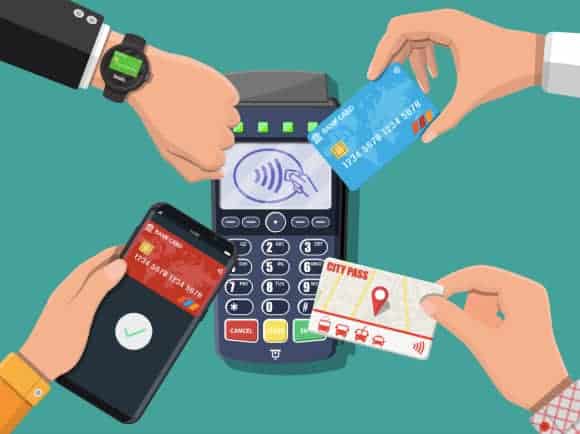
Slowly but surely, this number has been decreasing. Over the past decade, cash transactions have plummeted from over 60% to around a quarter of all transactions in Australia. And the decline of cash is now being accelerated even further by COVID-19.
As the world is told to limit contact with other people during the COVID-19 pandemic, we’re being encouraged to use cashless payment methods such as credit cards, debit cards and Apple Pay wherever possible rather than cash.
The impact of this shift towards contactless payments goes beyond signage at the supermarket. In April, the Australian Banking Association said that banks would send out a record number of debit cards for free to self-isolating customers following COVID-19 medical advice encouraging the use of contactless payments. This mass mail-out was particularly aimed at elderly and vulnerable people that did not already have a debit card linked to their bank account.
With cash already on the decline, some experts predict that Australia could now become the Asia Pacific’s first cashless society by 2022. But the Commonwealth Bank suggests it will probably happen by around 2026. The rise of online shopping – where cash payment is not possible – is partly responsible for this. But there are even already some bricks-and-mortar businesses in Australia that don’t accept cash at all.
Almost everybody benefits from a cashless society. Banks benefit from the interchange fees collected on card transactions. Consumers benefit from the convenience (and, of course the ability to earn frequent flyer points on card payments). Governments too benefit from less tax evasion and money laundering – key concerns behind a recent federal government proposal to ban cash transactions above $10,000.
Businesses also benefit in some ways from accepting card payments, although they also generally bear the burden of credit card interchange fees and EFTPOS terminal costs. These costs are one of the main reasons there are still some businesses in Australia that don’t accept card payments. But there are also costs (and risks) involved in handling large sums of cash, and a shift in consumer behaviour will soon render some businesses that don’t accept card payments uncompetitive.
Cash is no longer king in many countries
The shift towards contactless payments is even more noticeable in some countries where cash was traditionally king, including in developing countries. In Rwanda, for example, mobile payments increased fivefold in the month after a lockdown was introduced there due to COVID-19. This also coincided with a three-month suspension of transaction fees and increased transaction limits. Once fees are reintroduced, it’s likely that mobile transactions will reduce somewhat – but not all the way back to pre-covid levels.
Even in some developed countries like Germany, credit cards never really took off prior to COVID-19. There’s a German saying that roughly translates to “only cash is the real deal” (“Nur Bares ist Wahres”), and even major supermarkets in the country routinely do not accept credit card payments. But that too is starting to change as COVID-19 has forced businesses and consumers alike to embrace contactless forms of payment.
Some countries are already close to cashless
Some countries, such as Sweden or Norway, are already largely cashless societies. In Sweden, for example, some banks don’t even handle or issue cash any more. Credit cards and new technologies like Apple Pay are universally accepted. Some businesses even accept cryptocurrencies as payment.
When travelling to these countries, you can easily spend an entire holiday without ever needing to withdraw cash. This may put foreign exchange dealers out of business, but it’s so much more convenient for most travellers. It also avoids the problem of exchanging too much foreign cash, which then needs to be converted back (with forex fees payable in both directions).
In China, Alipay and WeChat Pay are now accepted almost everywhere. Anyone with an Alipay account can buy almost anything in China by simply scanning a QR code with their phone. Even small businesses and many street vendors accept Alipay as payment. The system was previously only available to those with a Chinese bank account, but tourists can now sign up too using a foreign credit card.
QR code payments are gaining popularity in other Asian countries too, including India where Bharat QR and UPI QR payments are growing enormously. It’s not only more seamless for the customer, but businesses face much lower barriers in accepting QR code payments than they do installing an EFTPOS terminal.
Back in Australia, there are now Apps like Beem It (modelled off similar payment solutions such as Tikkie in the Netherlands) which make it possible to instantly transfer money to friends electronically. And, although QR code payments are not yet commonplace here, most small businesses now accept debit and credit cards at a minimum (even if Amex and Diners Club card acceptance is still somewhat patchy).
The trend towards a cashless society began years ago, but the current pandemic is accelerating that transition. If some experts are to be believed, all payments in Australia will be conducted digitally sooner than we realise.



